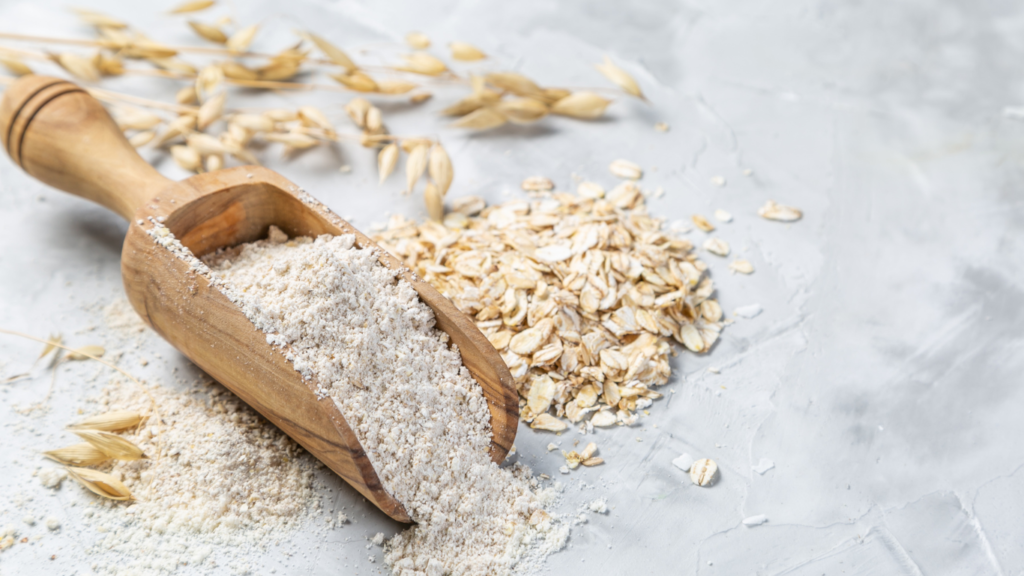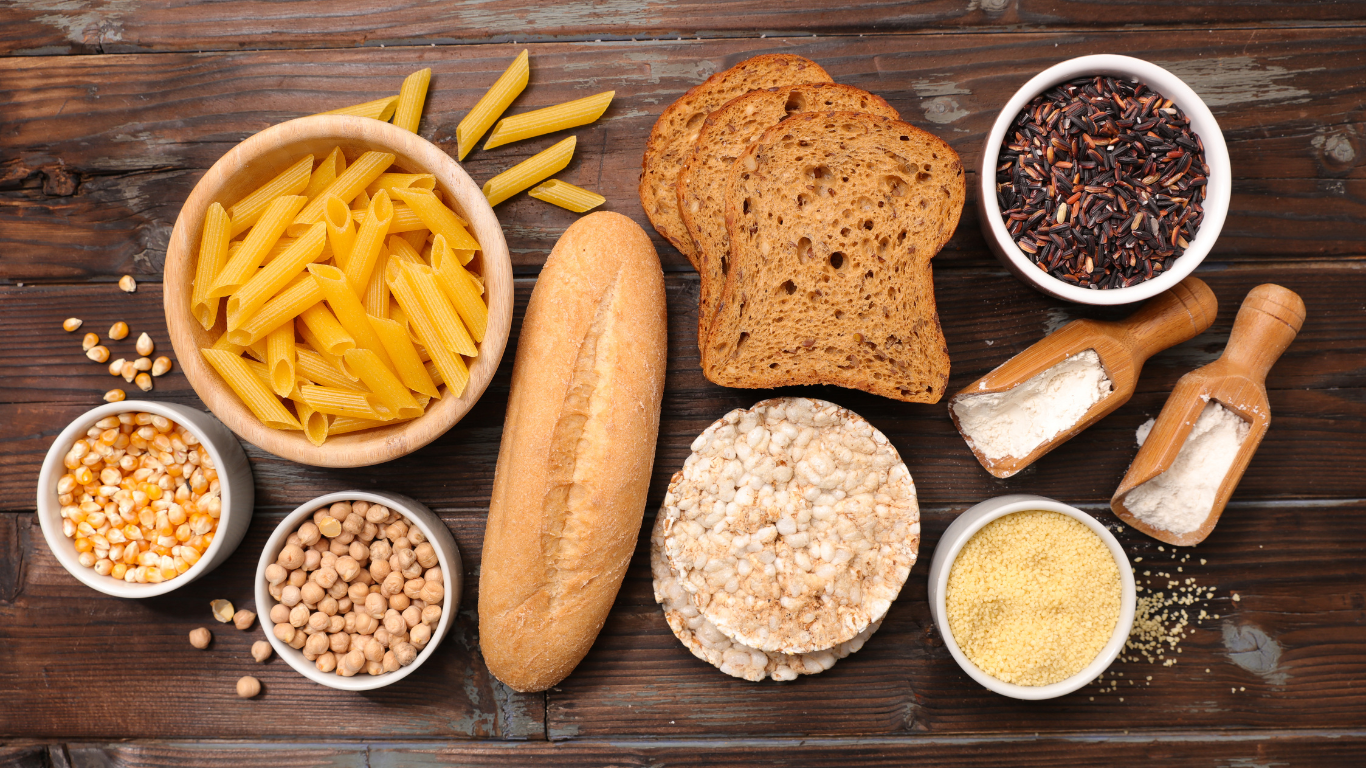Gluten, a protein found in wheat, barley, and rye, has garnered significant attention in recent years due to its impact on health and nutrition. While some individuals need to avoid gluten due to conditions like celiac disease or non-celiac gluten sensitivity, for many others, gluten-containing foods can offer various health benefits. In this exploration, we delve into the potential advantages of including gluten in the diet for those without gluten-related disorders.
Gluten-rich foods, such as whole grains, play a vital role in providing essential nutrients and contributing to overall health. From supporting digestive health to providing sustained energy, gluten can be a valuable component of a balanced diet. Understanding the potential benefits of gluten can help individuals make informed choices about their dietary preferences and optimize their nutritional intake.
Join us as we uncover the health benefits of gluten and explore how it can be part of a nutritious and fulfilling diet for many individuals.
What kind of food has gluten?

Gluten is a protein found in wheat, barley, rye, and their derivatives. This means that foods made from these grains such as bread, pasta, cereal, and baked goods usually contain gluten. Additionally, processed foods like sauces, dressings, and soups often use gluten as a thickener or stabilizer. Surprisingly, many unexpected products can also harbor gluten including some soy sauce brands which incorporate wheat in their recipe.
When exploring the realm of alcohol consumption, beer stands out as a prominent source of gluten due to its barley content. In contrast to popular belief that all alcohol is gluten-free after distillation process removes the gluten protein; it’s essential to note spirits like whiskey can still contain trace amounts of gluten for individuals with severe sensitivities.
Observe your food choices tightly because even ordinary dishes may hide gl tem hiding just under the surface. It might prove elusive to avoid gl tem altogether if not closely scrutinizing labels when grocery shopping or dining out thus vigilance proves key at you reevaluating every aspect of your culinary life style especially when factoring in sensory analysis be it taste,sight etc.
Is gluten in wheat?
Yes, gluten is found in wheat. Gluten is a type of protein that is naturally present in wheat and other grains such as barley and rye. It is what gives dough its elastic texture and helps it rise. When people have a gluten intolerance or allergy, consuming wheat or other gluten-containing grains can cause digestive issues and other symptoms. It’s important for individuals with gluten sensitivities to avoid foods that contain wheat or gluten to maintain their overall health and well-being.
Does beer have gluten?
For a long time, the question of whether beer contains gluten has been a topic of debate and confusion for many people, especially those with gluten sensitivities or celiac disease. The truth is that most traditional beers are brewed using barley, wheat, or rye, all of which contain gluten. This means that regular beer is not safe for those with gluten intolerance or celiac disease. However, in recent years, the market has seen an increase in gluten-free beers made from alternative ingredients such as sorghum, rice, millet, or corn. These alternatives provide a safer option for individuals who need to avoid gluten while still being able to enjoy a cold brew.
As always, it’s crucial for those managing their intake of gluten to carefully read labels and research brands before making their beverage choices. With more awareness and the growing demand for gluten-free options, the future looks promising for beer enthusiasts who can’t tolerate traditional forms of this beloved beverage but still want to partake in social drinking occasions without worry.
Does milk have gluten?
Many people may wonder whether milk contains Gluten, especially those who have gluten sensitivities or allergies. The good news is that pure, unflavored milk in its natural state does not contain any gluten. However, flavored or sweetened milk may contain added ingredients that could potentially include gluten, so it’s important to carefully read the labels if you have a gluten intolerance.
Furthermore, individuals with celiac disease or severe gluten allergies should be cautious when consuming processed dairy products such as chocolate milk or malted milk drinks, as these products may contain added gluten ingredients. It’s advisable to opt for plain, unflavored varieties of dairy products to minimize the risk of inadvertently consuming traces of gluten. In essence, while pure milk itself does not inherently contain gluten, it’s essential to be mindful of potential sources of added gluten in flavored milk and other dairy products.
Does rice have gluten?
Many people wonder whether rice contains gluten, especially those following a gluten-free diet. The good news is that rice is naturally gluten-free, making it a safe and versatile option for those with celiac disease or non-celiac gluten sensitivity. This means that rice and rice-based products can be enjoyed without the worry of triggering adverse reactions caused by gluten.
However, it’s important to note that cross-contamination can occur during growing, harvesting, processing, or cooking of rice products. Therefore, individuals with gluten sensitivities should seek out certified gluten-free rice and ensure that their preparation methods maintain a separation from any potential sources of gluten. By staying informed about the risks of cross-contamination and choosing verified gluten-free options, people can continue to enjoy the nutritional benefits and culinary possibilities of this ancient grain without concern for unwanted side effects.
What is the difference between oats and gluten?

When it comes to oats and gluten, it’s crucial to understand the key differences. Oats are naturally gluten-free grains, a great source of fiber and nutrients. However, they are often contaminated with wheat or other gluten-containing grains during processing.
Additionally, some people may have non-celiac gluten sensitivity which can cause similar symptoms without the autoimmune response seen in celiac disease. Understanding the difference between oats and gluten is essential for those who follow a gluten-free diet or have sensitivities to these ingredients.
In summary, while oats are naturally gluten-free, cross-contamination during processing can make them unsafe for individuals with celiac disease or non-celiac gluten sensitivity. It’s important for consumers to look for certified gluten-free oats if they need to avoid gluten entirely and always read food labels carefully to ensure their safety.
Are oats gluten healthy?
Oats are naturally gluten-free, making them a healthy option for individuals with celiac disease or gluten sensitivity. However, cross-contamination during processing can occur, leading to the presence of trace amounts of gluten in many commercial oat products. For those with sensitivities to even small amounts of gluten, it’s crucial to seek out certified gluten-free oats to avoid adverse reactions.
Although oats themselves are nutritious and provide fiber, protein, and various vitamins and minerals, it’s essential to consider the source and processing methods when incorporating oats into a gluten-free diet. Opting for uncontaminated oats or products labeled certified gluten-free can ensure that you’re reaping the health benefits without ingesting any unwanted gluten. Additionally, experimenting with alternative grains like quinoa or amaranth can offer diverse nutritional profiles while catering to specific dietary needs.
Conclusions
In conclusion, the health benefits of Gl tem are extensive and compelling. From its potential to lower blood sugar levels and reduce inflammation to its ability to support gut health and improve cognitive function, Gl tem holds great promise as a natural remedy for various health conditions. Its antioxidant properties and anti-cancer effects further underscore its potential as a valuable addition to one’s diet. As research into Gl tem continues to expand, it is becoming increasingly clear that this natural substance has the potential to offer numerous health benefits. Therefore, incorporating Gl tem into your diet or considering it as a supplement may be a beneficial step toward improving your overall well-being. Embracing the potential of Gl tem could lead to enhanced health and vitality for individuals seeking natural remedies for their wellness journey.




